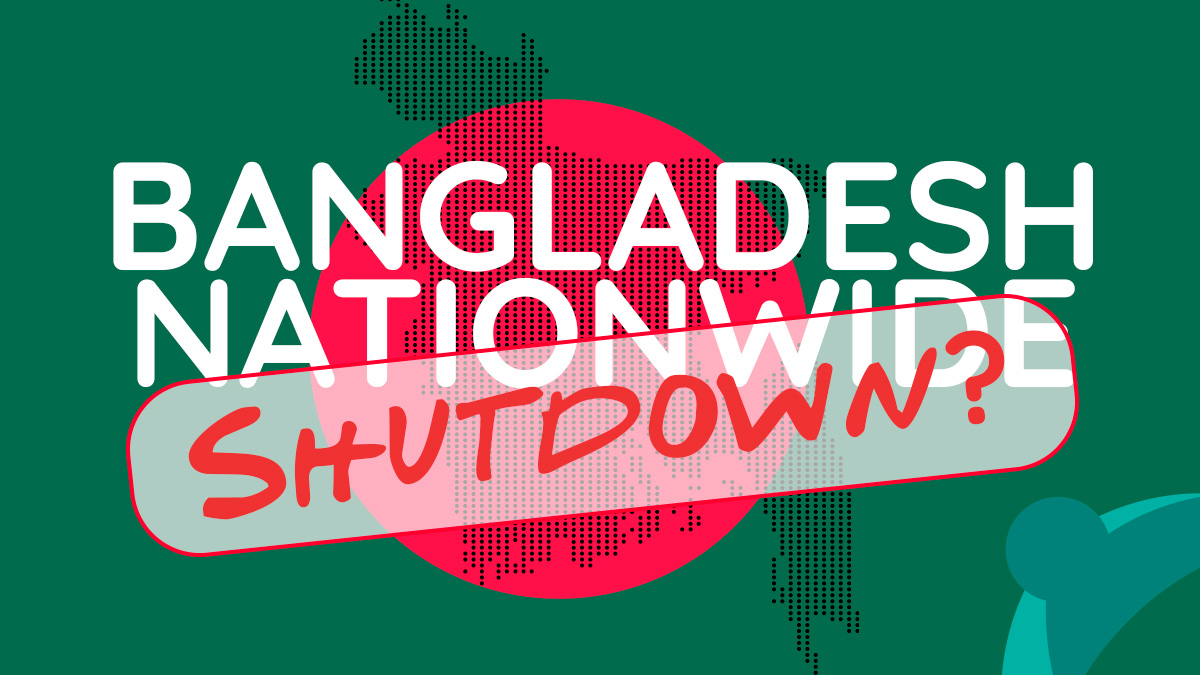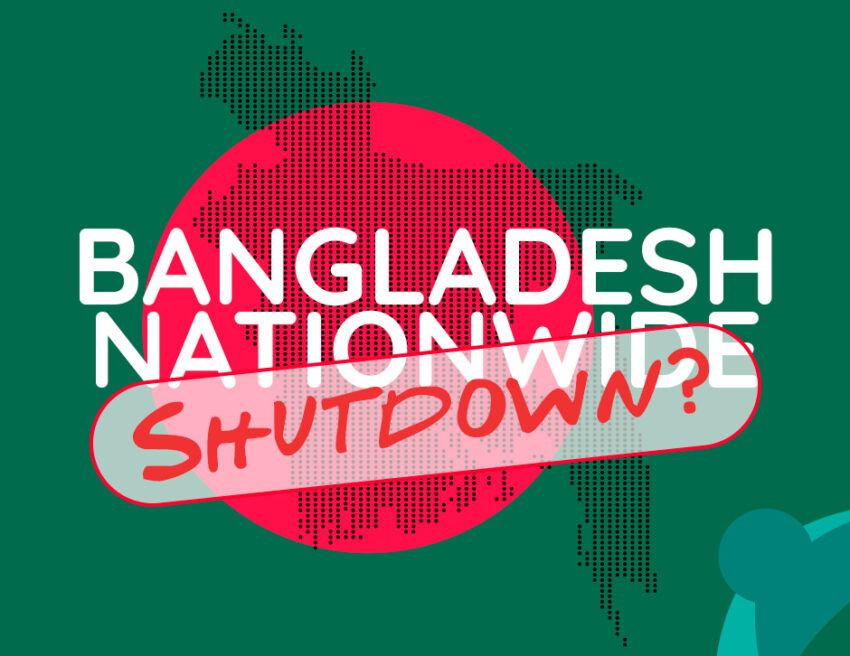Bangladesh is currently experiencing significant socio-political unrest. What began as student-led protests demanding the abolition of quotas in civil service jobs has transformed into a broader anti-government movement. The situation has become increasingly volatile, impacting various sectors, including logistics. Tower Freight Logistics Limited, Conqueror member in Dhaka, Bangladesh, provides an update on the current scenario and its implications for the logistics sector.

Understanding the protests in Bangladesh
The protests in Bangladesh initially focused on abolishing quotas in civil service jobs, which students argued were unfair and discriminatory. Over the past month, the movement has grown, with students now calling for the government’s resignation and declaring an indefinite civil disobedience movement.
The movement has unfortunately turned violent, resulting in the deaths of hundreds of people. In response, the government has imposed curfews in all divisional cities, which will remain in effect until further notice. This measure aims to curb the violence but has also restricted movement and daily activities. Protesters have urged citizens to shut down all factories and public transport and stop payment of taxes and utility bills. As a result, this escalation reflects the deepening dissatisfaction with the government and has led to significant disruptions across the country.
In response to the escalating violence, which has resulted in hundreds of casualties, the government declared a three-day public holiday from August 5 to August 7, 2024. These measures aim to restore order but also contribute to the disruption of business activities. Nurul Amin states, “The government’s decision to impose curfews and suspend mobile internet access has made it challenging for us to operate normally. We are working on contingency plans to mitigate the impact on our operations and keep our clients informed. However, considering the prevailing situation, members may not receive and reply to queries or emails promptly. We urge our partners and clients to be patient and understanding during these unprecedented times,” says Nurul Amin, Managing Director of Tower Freight.”
Meantime, the ruling government has resigned and Prime Minster has left the country, new interim government being formed. “Situation is slowly returning to normal as offices has resumed from today,” adds Amin.
The impact on logistics industry
The current unrest poses numerous challenges for the logistics industry in Bangladesh. With curfews in place and public transport shut down, the movement of goods has been severely restricted. Factories are closing, and the suspension of mobile internet has hampered communication. This disruption affects the entire supply chain, from manufacturing to delivery. Nurul Amin comments, “With the imposition of curfews in all divisional cities and the suspension of internet access on mobile devices, communication has become extremely difficult. This hampers our ability to coordinate with clients and manage shipments effectively.”
Moreover, the call for an indefinite civil disobedience movement has led to the shutdown of factories and public transport, creating bottlenecks and delays in the supply chain. Nurul Amin adds “The safety of our employees and the security of the goods we transport are our top priorities. We are working to adapt our operations to the current situation while ensuring minimal disruption to our clients.”
The broader economic impact
The protests and subsequent government measures are likely to have far-reaching economic consequences. The shutdown of factories and public transport disrupts not only the logistics industry but also manufacturing, retail, and other sectors reliant on a smooth supply chain. Economists predict a slowdown in economic activity, which could have a ripple effect on international trade. Companies dependent on imports and exports may face delays and increased costs, further complicating the business environment in Bangladesh.
Recommendations for clients and partners
The violent nature of the protests poses safety risks for logistics personnel and the goods in transit. Ensuring the security of both is paramount. The company has taken steps to safeguard its workforce and assets.
Given the current situation, Tower Freight Logistics advises clients and partners to be prepared for potential delays and disruptions in their supply chains. The company is committed to maintaining open lines of communication, albeit through limited channels, to keep stakeholders updated.
Preparing for the future
In light of the current crisis, Conqueror Dhaka is also taking proactive steps to ensure business continuity and minimize disruptions. The company is exploring alternative communication methods to maintain contact with clients and partners. “We are developing contingency plans to address various scenarios. Our goal is to continue providing reliable service to our clients while adapting to the evolving situation,” Nurul Amin states.
The current protests in Bangladesh represent a significant challenge for the logistics industry. Tower Freight Logistics is committed to maintaining its operations and supporting its clients despite these difficulties.


